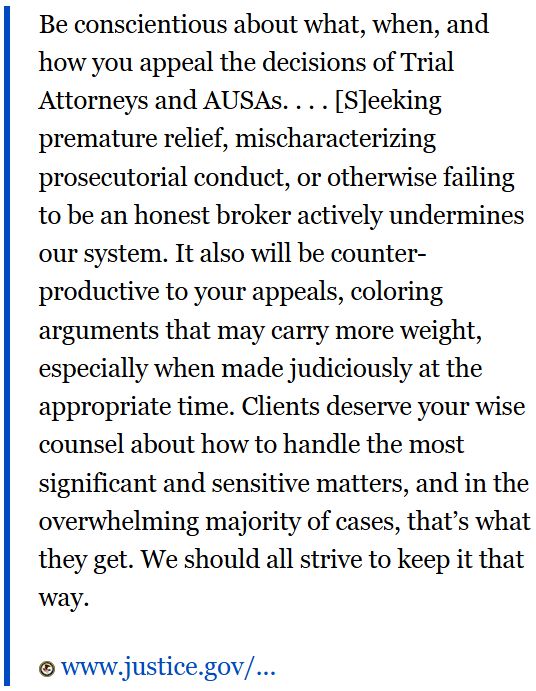- within Employment and HR, Media, Telecoms, IT and Entertainment topic(s)
- with Senior Company Executives, HR and Inhouse Counsel
- with readers working within the Healthcare, Technology and Pharmaceuticals & BioTech industries
Most headlines about today's remarks by DOJ Criminal Division Head Matthew R. Galeotti will concern his announcement that the much-reported "pause" on FCPA enforcement – instituted by the President in a February Executive Order – is over. But there is much else in today's speech that is worth reviewing closely, including his discussion of departmental priorities for white-collar enforcement, an examination of the role that early disclosure (and failures to disclose) will play in prosecutorial decisions, and how the Criminal Division is thinking about corporate monitors.
One passage should be of particular note to white collar attorneys. Galeotti cautioned that companies and people must "[b]e conscientious about what, when, and how you appeal the decisions of Trial Attorneys and AUSAs" (i.e., seek process with senior officials, whether within U.S. Attorneys' Offices or at Main Justice). He continued, saying that "seeking premature relief ... actively undermines our system."
There has always been a temptation to go over the heads of line prosecutors investigating or handling individual cases, who may not have the wide-angle view that their supervisors do. That temptation may be especially strong in the current moment, where (rightly or wrongly) the perception is that decision-making is more centralized than ever before. But the decision to go "up the chain" should not be taken reflexively, especially on matters that may be long-running, and if the decision being appealed is not a final one. And for white collar attorneys, whose credibility before government officials is critical to their ability to represent clients effectively, the consequences of seeking process too early may be severe.
Of course, lawyers should not hesitate to appeal decisions that appear to be ill-considered or short-sighted when the time is right, or when the stakes call for it. But in today's remarks, the Criminal Division Head emphasized that when and how one seeks process is just as important as the merits of their position.
The content of this article is intended to provide a general guide to the subject matter. Specialist advice should be sought about your specific circumstances.


